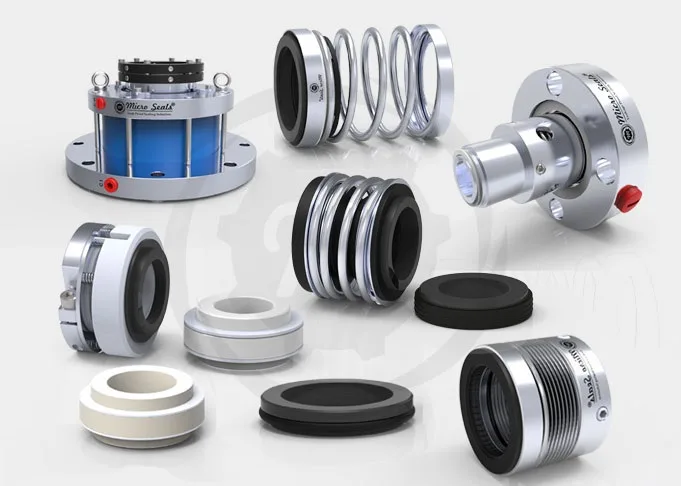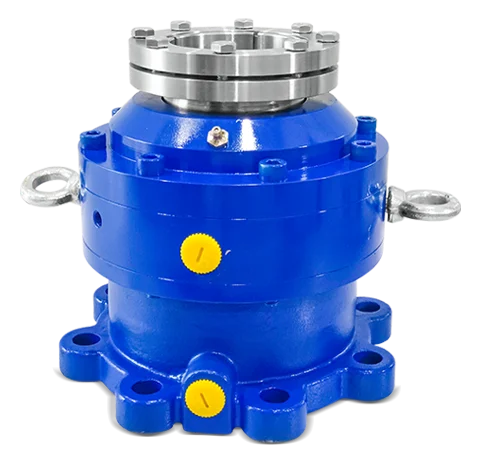Posted At: Apr 04, 2025 - 909 Views

How To Choose The Best Mechanical Seal For Your Pump
Choosing the best mechanical seals for your pump system isn’t just about compatibility — it’s about performance, durability, and efficiency. Mechanical seals play a critical role in preventing leakage, reducing maintenance, and ensuring the longevity of pump systems in industries like chemical processing, water treatment, oil and gas, food production, and more. In this blog, we’ll break down everything you need to know to select the best mechanical seal for your specific application.
What Are Mechanical Seals?
Before diving into the selection process, it's essential to understand what mechanical seals are. A mechanical seal is a device that forms a seal at the point of entry or exit of a rotating shaft to prevent fluids from leaking. These seals are vital in high-pressure and high-temperature environments and replace older packing methods that are less efficient.
How To Choose the Right Seal
When selecting the best mechanical seal, consider the following:
Pump Type and Design
Different pumps (centrifugal, submersible, positive displacement) require specific seal designs. The mechanical seal must be compatible with the pump’s configuration, pressure, and shaft size.
Fluid Characteristics
Understand the type of fluid being pumped — is it corrosive, abrasive, viscous, or contains solid particles? This directly influences the material choice for the seal faces, secondary seals (O-rings), and the metallurgy.
Operating Conditions
Temperature and pressure ratings are critical. For high-temperature systems, materials like carbon, silicon carbide, or tungsten carbide are common. If you're dealing with high-pressure systems, a double or balanced mechanical seal might be your best option.
Environmental Considerations
Is the system open to the atmosphere, or is it in a hazardous location? In such cases, double seals or gas-lubricated seals might be necessary to prevent environmental contamination and meet safety regulations.
Types of Mechanical Seals You Can Choose From
Single Spring Seals – Best for general-purpose and clean liquid applications.
Multi-Spring Seals – Suitable for higher-pressure applications and uniform loading.
Cartridge Seals – Pre-assembled units for easy installation and reduced error.
Metal Bellows Seals – Ideal for high-temperature or corrosive services.
Pusher and Non-Pusher Seals – Used based on axial movement and thermal expansion needs.
Why Choosing the Right Mechanical Seal Matters
Choosing the best mechanical seal improves pump performance, minimizes downtime, extends equipment life, and significantly reduces operational costs. Poor seal selection can lead to leaks, energy loss, equipment failure, and expensive repairs.
Top Seal Materials
Choosing the right materials boosts reliability:
Seal Faces: Carbon, Silicon Carbide, or Tungsten Carbide.
Secondary Seals (like O-rings): EPDM, Viton, PTFE depending on chemical compatibility.
Metal Parts: Stainless Steel, Alloy 20, Hastelloy, etc.
Where to Find the Best Mechanical Seals?
At QM Seals, we manufacture and export high-quality mechanical seals designed for a wide range of industries. Our team helps customers across India, Saudi Arabia, Turkey, and Kenya choose the perfect sealing solution based on their application and operational requirements.
Benefits of Using the QMseals Mechanical Seals:
Leak-Free Operation – Protects your system and the environment.
Lower Maintenance Costs – Less wear and tear means fewer repairs.
Better Efficiency – Keeps the pump working at top performance.
Longer Equipment Life – A quality seal helps all parts last longer.
Safety & Compliance – Especially important in sensitive industries.
Conclusion
Choosing the best mechanical seal requires understanding your pump, your process, and the challenges you’re facing. Whether it’s temperature extremes, chemical compatibility, or ease of installation — the right seal makes all the difference. Work with a trusted supplier like QM Seals to ensure performance, safety, and long-term value.
Frequently Asking Questions
1. What is the most commonly used mechanical seal?
The single cartridge seal is widely used due to its ease of installation and reliable performance.
2. Can I use the same seal for different pumps?
Not always. Seals must match the pump type, fluid, and operating conditions.
3. How often should mechanical seals be replaced?
It depends on the application, but typically every 1–3 years for moderate usage.
4. What causes mechanical seal failure?
Improper installation, dry running, chemical incompatibility, or wear over time.
5. Are mechanical seals better than packing seals?
Yes, in most modern applications. They offer better sealing, lower maintenance, and higher efficiency.


